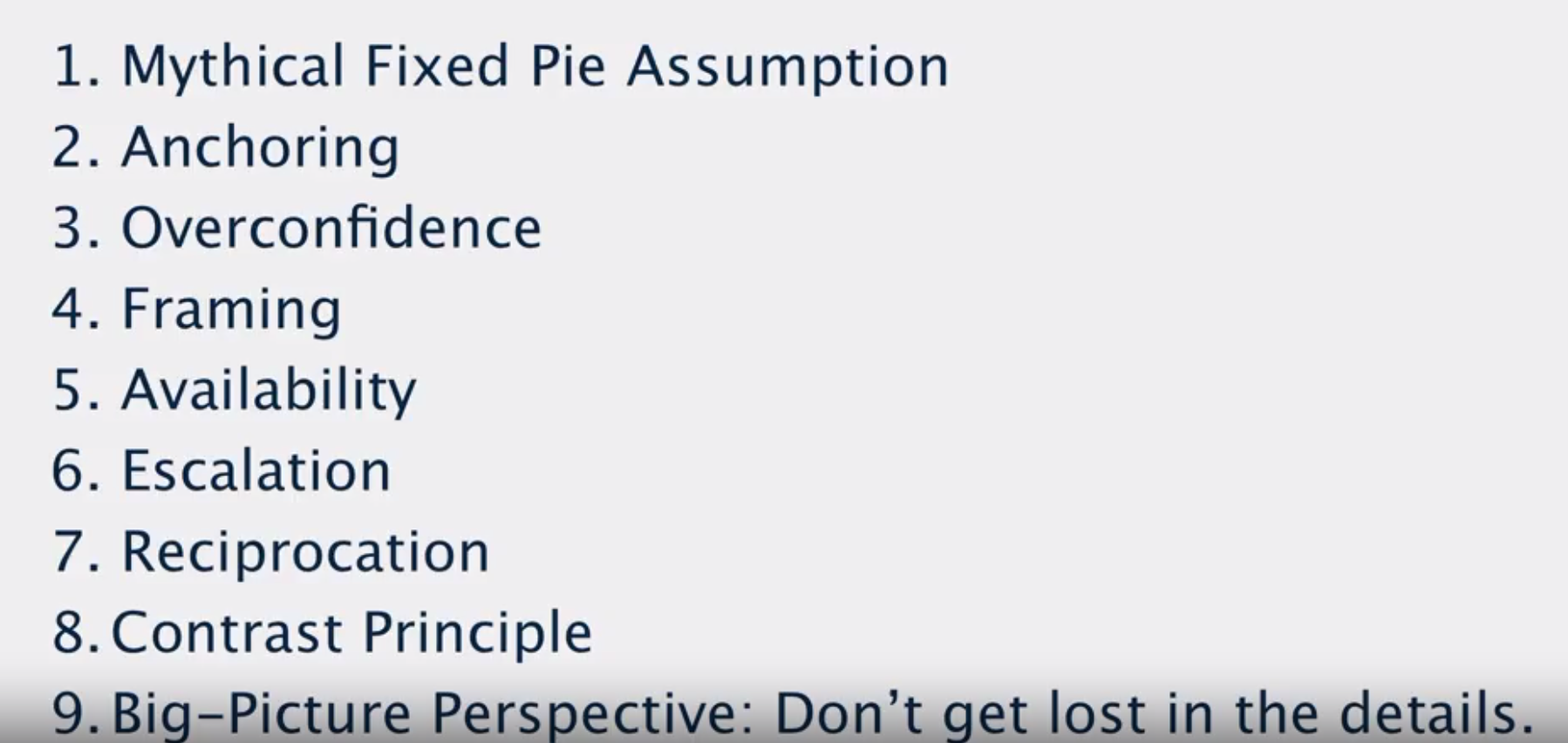
Getting To Know The Other Side
- Understand negotiation style of other side.
- Very important in cross cultural negotiations.
- Conversation intelligence.
- Dont talk too much, so avoid your favorite topics.
- Ask a lot of questions, people like to talk.
- Listen.
Power In Negotiations
- Information is the biggest source of power.
- Information about the other side’s BATNA is critical.
- Dont share your BATNA if it is weak.
- Try to weaken the BATNA of other side.
- Strengthen your BATNA.
- In some cases you can form coalitions to strengthen your BATNA.
- Mythical fixed pie assumption - out interests are in conflict with other side.
- Anchoring - who comes up with first price?
- If value is uncertain - let other side come up with first price.
- If value is certain - set first price to anchor the negotiation
- In case of stalemate - use similar deals as a way to break it
- Overconfidence
- Makes you select a narrow range when calculating ZOPA.
- Try to use disconforming evidence.
- Framing
- When we have a positive choice, a gain, we are risk averse.
- When we have a negative choice, a loss, we are pro risk.
- Availability
- We are influenced easily by information which is (easily) available.
- Escalation
- Look at negotiation from other side.
- Competitive Arousal
- Causes - intense rivarly, time pressure, spotlight.
- Avoid - limit role of intense neogitator, manage time, spread responsibility.
- Reciprocity - helping the other side is useful.
- Contrast Principle
- We compare an option with other available options, not on it own.
- So good idea to show some really bad options, so the option you want to sell becomes much more attractive.
- Big picture - dont get lost in the details.


